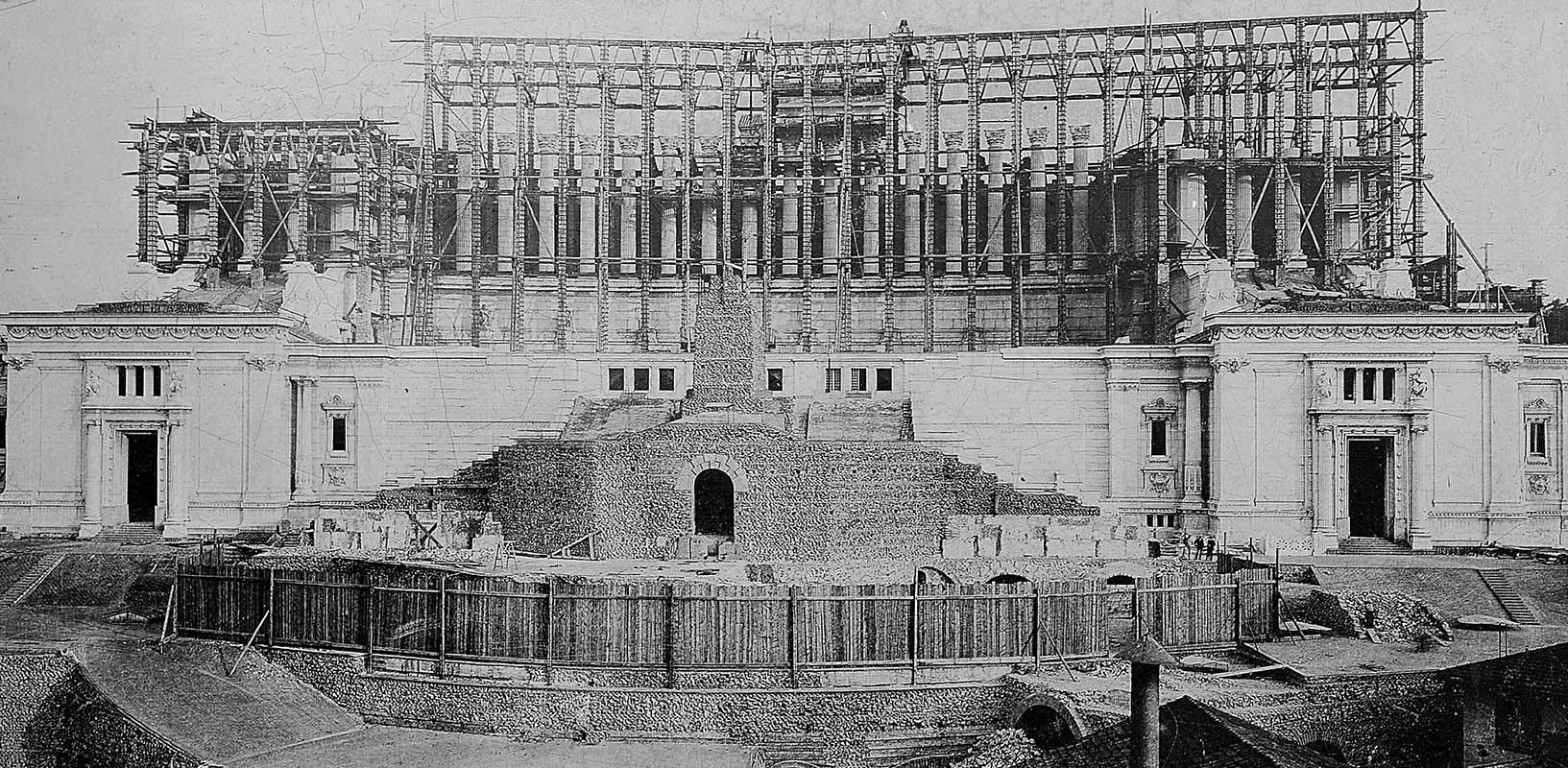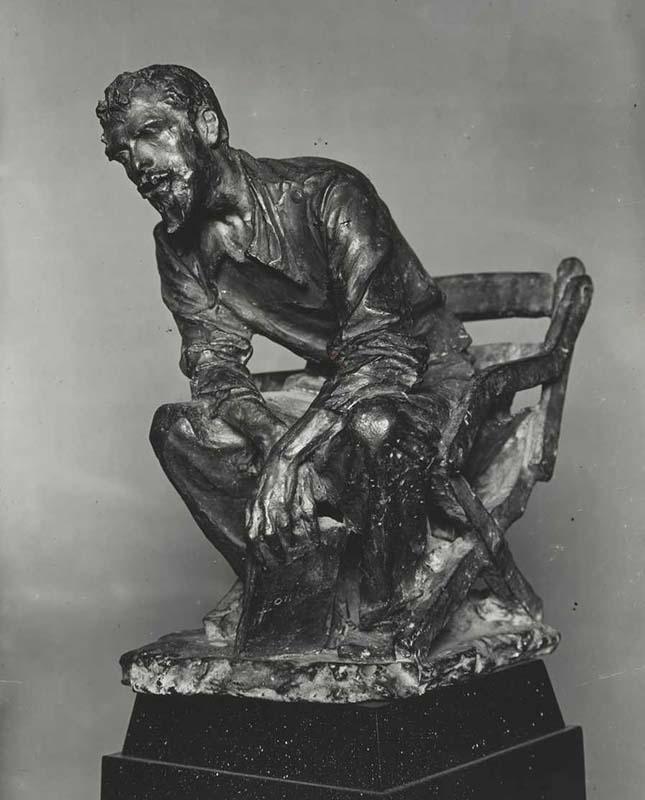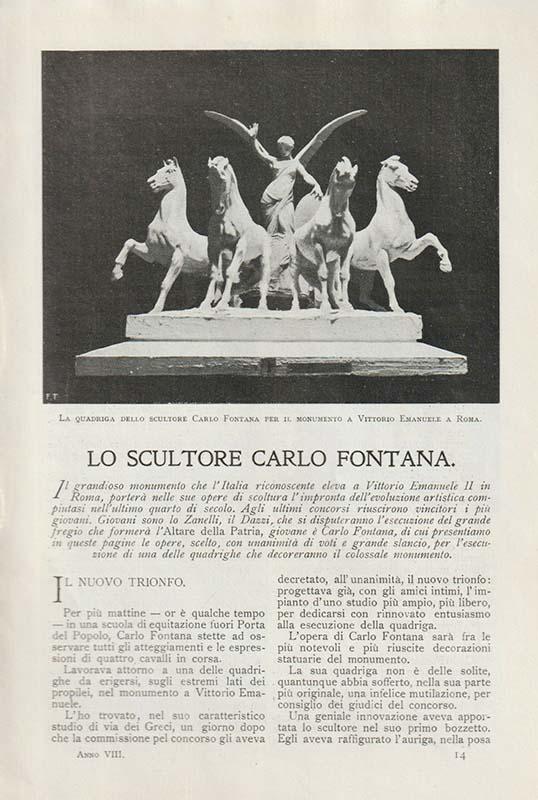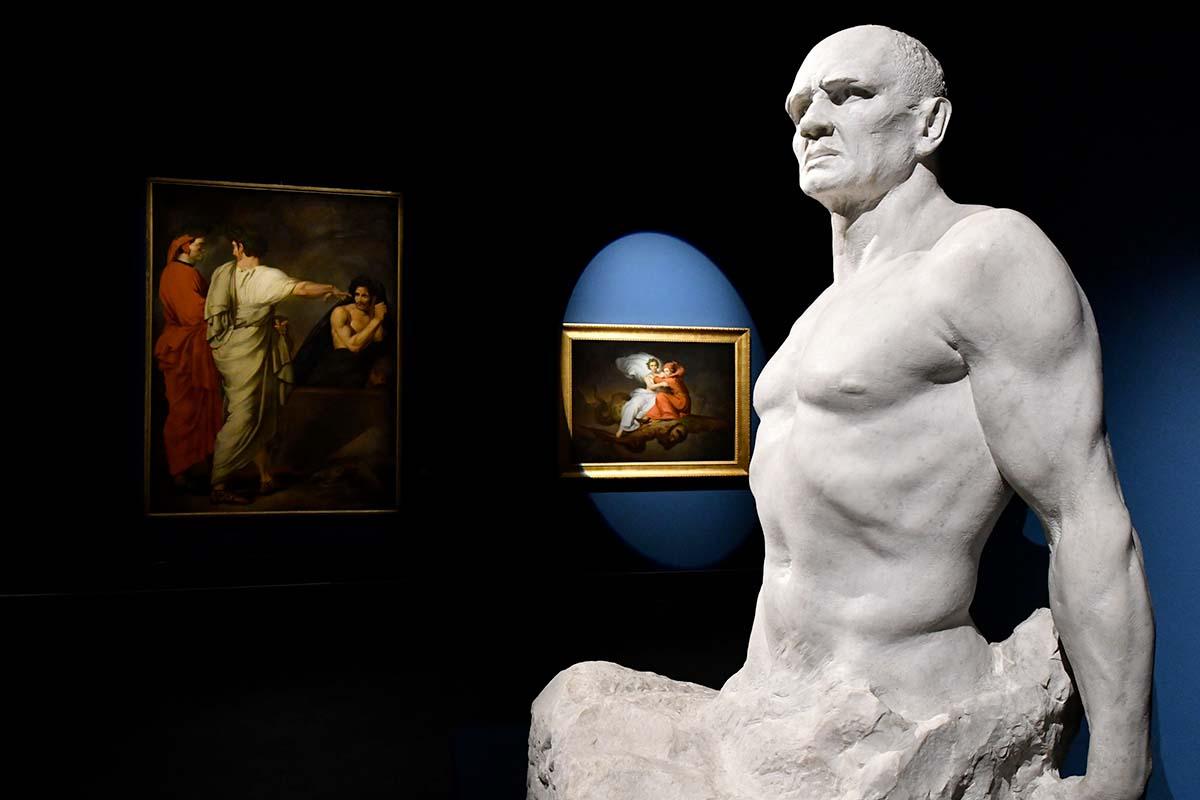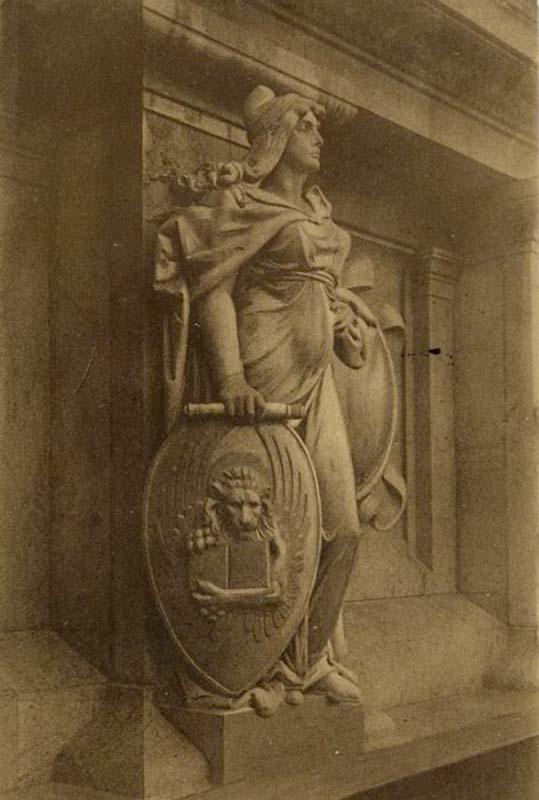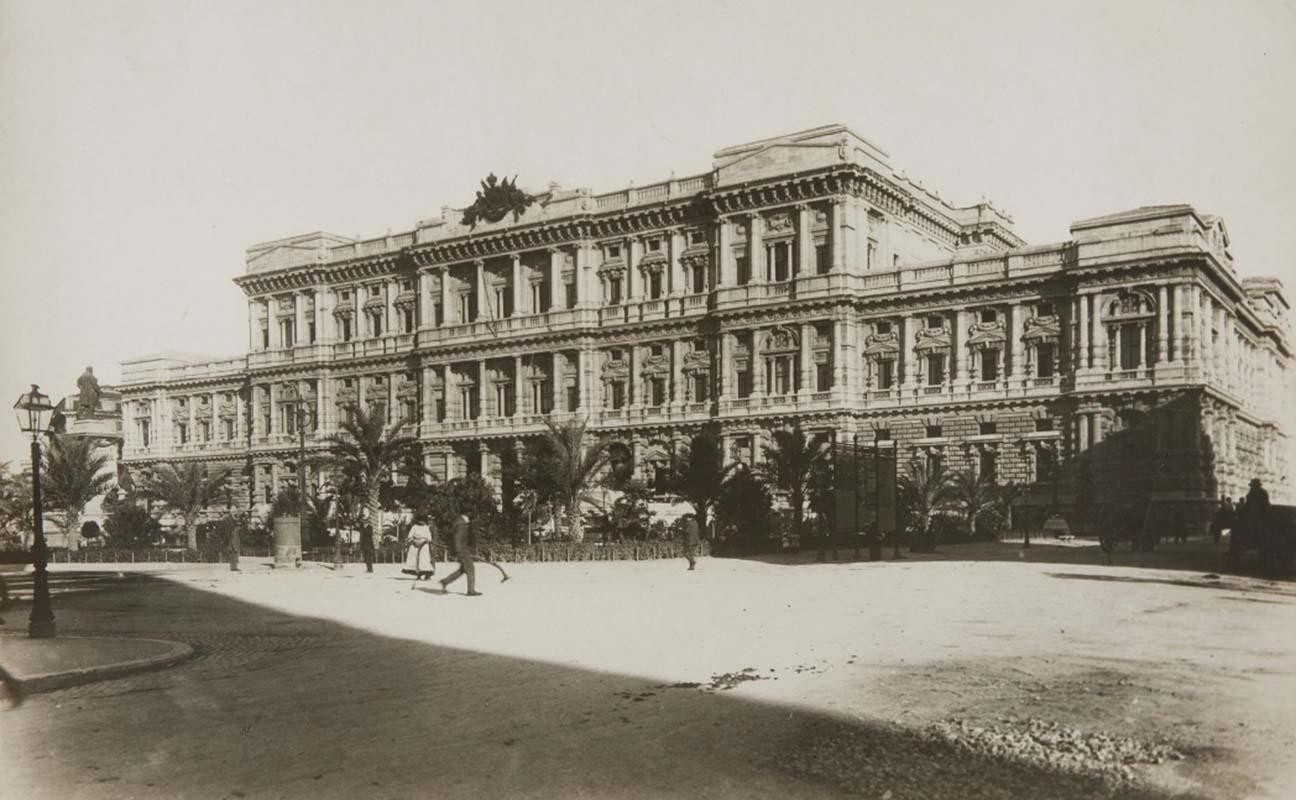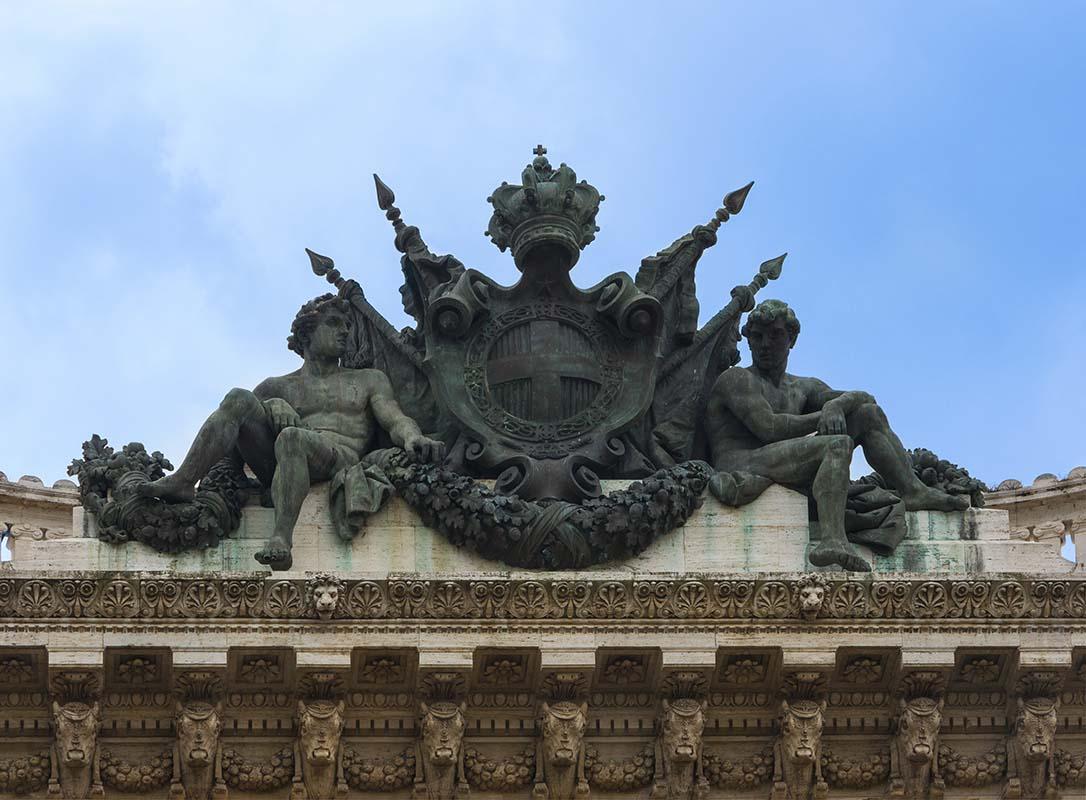The competition for the quadrigae
After a two-stage competition, victory for the commission was handed to Carlo Fontana and Paolo Bartolini
In 1907, two years after Sacconi’s death, the competition for the two quadrigae was announced. Of the twenty participants, the commission shortlisted seven and invited them to undertake the second test. In the end, victory smiled on Carlo Fontana (1865-1956) for the Quadriga of Unity and on Paolo Bartolini (1859-1930) for the Quadriga of Liberty.
Carlo Fontana, from Carrara, after an initial apprenticeship in the marble workshops in his home town, completed his training in Genoa and later, from the end of the 1880s, in Rome. By the beginning of the twentieth century, Fontana had reached his expressive maturity by developing an artistic language that was inspired by classicism and the Renaissance, especially by Michelangelo’s interpretation of that period, which is clearly expressed in his Farinata degli Uberti (Rome, National Gallery of Modern and Contemporary Art).
Paolo Bartolini, Roman by birth, was a sculptor and painter. As a sculptor, he specialised in monumental sculptural pieces: in 1900, he had completed the bronze statue crowning the façade of the Palace of Justice at Piazza Cavour. The artist also participated in the competition being held at the same time for the cycle of friezes depicting the Regions of Italy, and he won the commission to depict the Veneto region.

